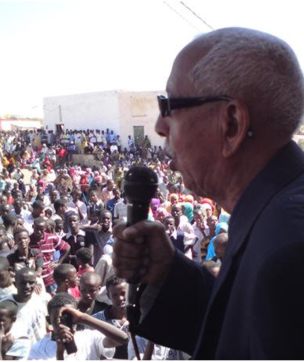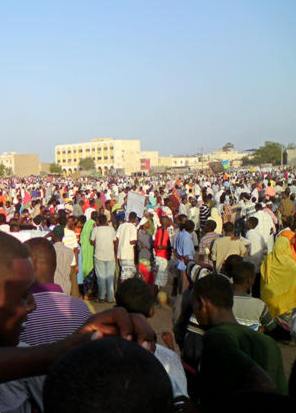|
Djibouti Politics | Human rights Djibouti opposition leaders freed
On Saturday, Ismaël Guedi Hared, the leader of Djibouti's main opposition coalition Union for a Democratic Alternative (UAD), was detained together with Aden Robleh Awalleh and Mohamed Daoud Chehem, leaders of the minor opposition parties PND and UJD.
The organisers of the protests - including a wide range of Djiboutian human rights groups, civil society and opposition parties - today are trying to coordinate further protests against the regime. Their main demand is for Djibouti President Ismaïl Omar Guelleh to desist from an unconstitutional third term bid in the upcoming April elections. But as the opposition and civil society groups call for continued protests, the Guelleh regime is preparing for a tough response. According to government-controlled media, national security institutions today had a meeting to discuss responses to the protest movement and to "regroup". National Security chief Hassan Said Khaireh said that "authorities will have to take severe measures to punish those responsible for these troubles and senseless act of violence." Mr Khaireh also stated that clear instructions had been given to security forces, including national police and the Gendarmerie "to maintain public order and ensure that security forces provide safety to all Djiboutians, whatever their political beliefs." He urged the public to cooperate and help "exposing the criminals undermining safety." The National Security chief's statements were aired by all Djiboutian media. President Guelleh, on the other hand, has not commented the protest movement yet. No political concessions have been made by government so far. By staff writer © afrol News - Create an e-mail alert for Djibouti news - Create an e-mail alert for Politics news - Create an e-mail alert for Human rights news
On the Afrol News front page now
|
front page
| news
| countries
| archive
| currencies
| news alerts login
| about afrol News
| contact
| advertise
| español
©
afrol News.
Reproducing or buying afrol News' articles.
You can contact us at mail@afrol.com









